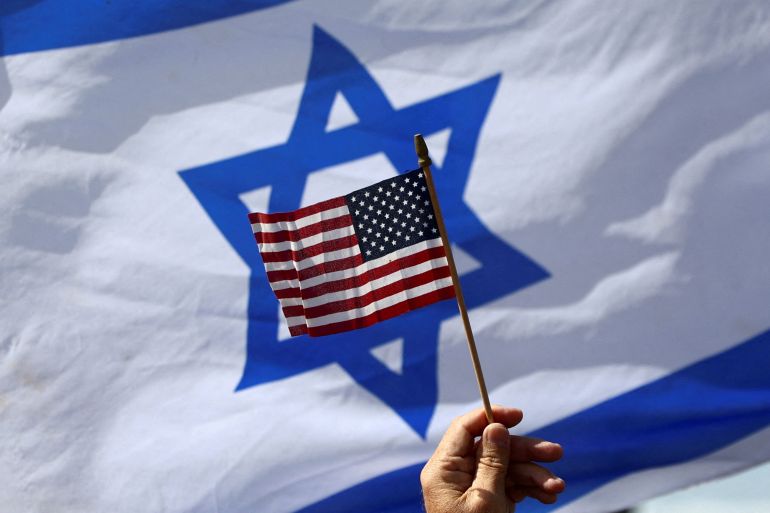Israel USA News: An In-Depth Overview of Key Relations and Developments

Introduction: The Strong Ties Between Israel and the USA
The relationship between Israel and the United States has long been one of the most closely watched and influential in international diplomacy. Over the years, the two countries have shared deep ties across political, economic, and military spheres. From mutual security interests to economic cooperation, the alliance has had a significant impact on global politics, especially in the Middle East. In 2024, the bond between these two nations continues to evolve with both challenges and milestones.
Historical Context of Israel-USA Relations
Before diving into the current events shaping U.S.-Israel relations, it’s important to understand the historical backdrop. The relationship has evolved significantly since the founding of Israel in 1948. The U.S. was one of the first countries to recognize the new state of Israel, and this pivotal moment set the stage for decades of cooperation.
The Birth of the Israeli State and Early Relations
In 1948, following the end of British rule in Palestine, the state of Israel was declared. The U.S., led by President Harry Truman, was quick to recognize the state, marking the beginning of what would become a strong diplomatic and military partnership. This early support set the foundation for continued U.S. involvement in Israel’s security and political stability.
Key Moments in U.S.-Israel Relations
Several key events in history have shaped the relationship. Notable milestones include the U.S. support during the Six-Day War in 1967, the Camp David Accords brokered by President Jimmy Carter in 1978, and the 1990s peace process under President Bill Clinton. These moments reflect the growing commitment of both nations to mutual security and peace efforts in the Middle East.
Recent Developments in Israel-USA Relations
In 2024, the U.S.-Israel relationship continues to strengthen, though it faces new challenges and opportunities. Let’s take a look at some of the key developments shaping this partnership today.
Diplomatic Engagements and Agreements in 2024
Under the current administration, diplomatic engagements between Israel and the U.S. have been significant. In recent months, the two countries have signed multiple security agreements to ensure the continued protection of Israel in the face of regional instability. Additionally, Israel has sought to expand its diplomatic footprint by strengthening ties with U.S. allies in Europe and Asia, bolstered by support from Washington.
Security and Military Cooperation
One of the cornerstone aspects of U.S.-Israel relations is their close security and military cooperation. In 2024, this cooperation remains a high priority, with the U.S. continuing to provide Israel with advanced military technology, defense systems like the Iron Dome, and financial support for military readiness. This partnership is crucial, as both nations face shared threats from groups like Hezbollah, Hamas, and other adversaries in the region.
The Role of the USA in Israeli-Palestinian Peace Efforts
For years, the United States has played a pivotal role in trying to mediate peace between Israel and the Palestinians. In 2024, this remains a key aspect of U.S.-Israel relations, although the prospects for lasting peace continue to face many obstacles.
The U.S. Stance on the Two-State Solution
The U.S. has traditionally supported the two-state solution as a pathway to peace between Israel and Palestine. However, the political realities in both regions make this solution difficult to implement. While the Biden administration has reaffirmed its support for a two-state solution, challenges such as Israeli settlement expansion and Palestinian political fragmentation continue to hinder progress.
Recent U.S. Initiatives in Peace Talks
In 2024, the U.S. has renewed efforts to restart peace talks between https://txbrief.com/ and the Palestinians, though these efforts have had limited success. The American administration has pushed for a return to dialogue, but both sides remain entrenched in their positions, with Israel facing mounting pressure from international bodies to address issues like settlements and the status of Jerusalem.
U.S. Politics and Its Influence on Israeli Relations
Israel is often a focal point in U.S. political discourse, with both major parties maintaining strong support for the Jewish state. However, shifts in domestic politics and public opinion in the U.S. are having an increasing impact on Israeli relations.
Bipartisan Support for Israel
Both Republican and Democratic parties in the U.S. generally support Israel, though their approaches can differ. Republicans typically emphasize Israel’s security needs and often take a more hardline stance against groups like Iran. Democrats, while also supporting Israel, tend to prioritize human rights concerns and push for a more balanced approach to the Israeli-Palestinian conflict.
Changes in U.S. Administration and Shifting Policies
As U.S. administrations change, so too do their policies towards Israel. The Biden administration, for example, has been more vocal about human rights concerns, including issues regarding Israeli settlements in the West Bank. These differences in policy priorities reflect the broader ideological divides in American politics.
Economic Ties Between Israel and the USA
The economic relationship between the U.S. and Israel is another vital component of their alliance. In 2024, the economic partnership continues to thrive, with both countries benefiting from trade, investment, and technological collaboration.
Trade Relations and Economic Partnerships
The U.S. is one of Israel’s largest trading partners. In 2024, trade between the two nations reached new heights, particularly in technology, defense, and energy sectors. Both countries continue to benefit from mutual investments and have explored new avenues for economic cooperation, especially in high-tech industries.
Technology and Innovation Collaboration
Israel is often referred to as the “Start-Up Nation” due to its thriving tech sector. The U.S. and Israel share a robust collaboration in technology and innovation. In 2024, Israeli tech companies continue to play a significant role in advancing American cybersecurity, artificial intelligence, and health tech industries. American companies, in turn, invest heavily in Israeli startups.
Israel’s Geopolitical Role in the Middle East
Israel plays a critical role in Middle Eastern geopolitics. It serves as a key ally to the U.S. in a region fraught with conflict and instability. Israel’s alliances with other countries in the region, such as the United Arab Emirates (UAE) and Saudi Arabia, further strengthen U.S. interests in the Middle East.
Israel’s Strategic Alliances with U.S. Neighbors
Israel has strengthened its ties with U.S. allies in the Middle East, especially after the signing of the Abraham Accords, which normalized relations between Israel and several Arab nations. These agreements have helped foster peace and stability in the region, creating a united front against shared threats.
Israel’s Role in Regional Security and Defense
Israel’s military capabilities play a central role in the U.S. strategy for regional security. In addition to its defense systems, Israel works alongside the U.S. military to counter threats from Iran and militant groups. Israel’s strategic location also makes it a key player in intelligence-sharing and surveillance efforts.
Challenges in Israel-USA Relations
Despite the strong ties between Israel and the U.S., there are several challenges that threaten to strain this relationship. From differing views on Iran to ongoing human rights debates, these issues require careful management.
Differences Over Iran and Nuclear Proliferation
The U.S. and Israel have often disagreed over the approach to Iran’s nuclear program. While Israel has consistently pushed for more aggressive action against Iran, the U.S. has taken a more diplomatic route, emphasizing negotiations and multilateral agreements. This divergence has caused tension, especially as the U.S. has re-engaged in the Iran nuclear deal negotiations.
Human Rights Concerns and Global Criticism
Israel’s treatment of Palestinians and its settlement expansion in the West Bank have drawn international criticism. While the U.S. often defends Israel’s right to self-defense, there are growing calls within the U.S. for Israel to address human rights concerns. Balancing these critiques with the strategic partnership remains a delicate task.
Conclusion: The Future of Israel-USA Relations
Looking ahead, the future of Israel-USA relations will likely continue to evolve, shaped by both regional dynamics and domestic politics in both countries. While the partnership remains strong, challenges such as the Iranian nuclear threat, Israeli-Palestinian tensions, and global criticism will require ongoing diplomacy and cooperation. Nevertheless, the relationship between the two nations is poised to remain a cornerstone of U.S. foreign policy in the Middle East.







